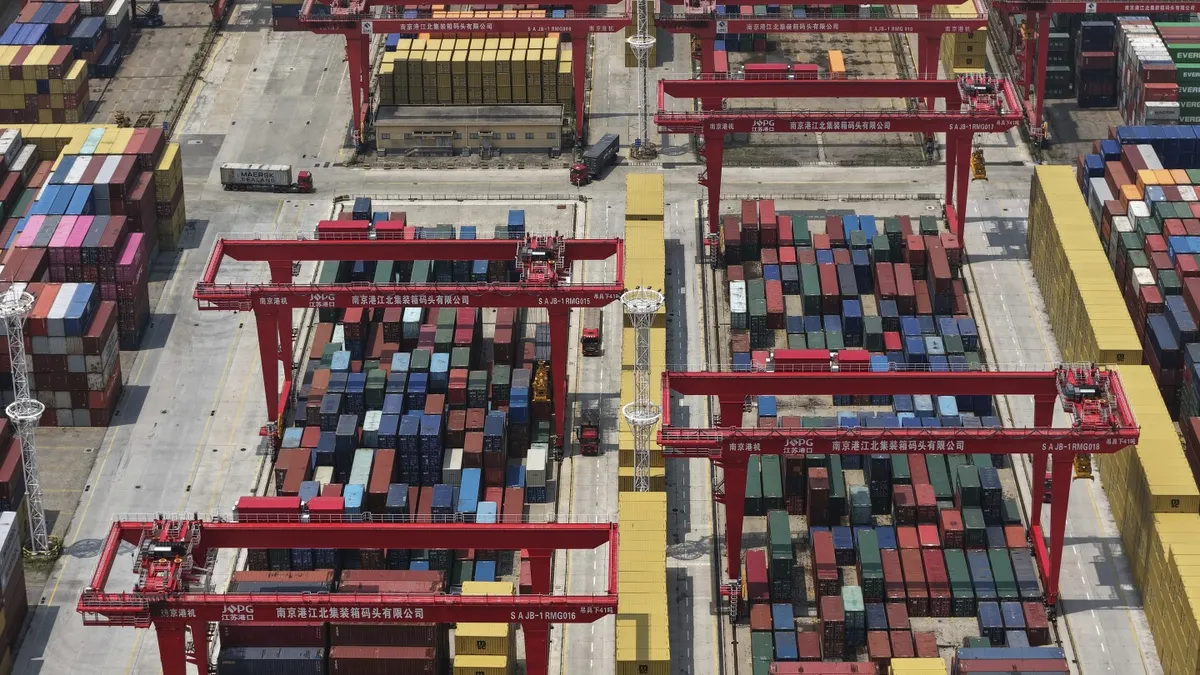
This week, U.S.-China trade talks are set to take place in London, where negotiators will confront a series of new disputes that threaten to disrupt a delicate ceasefire over tariffs. Last month in Geneva, both nations agreed to a 90-day suspension of the extensive tariffs exceeding 100% that they had imposed on each other amid a deteriorating trade war, which had stoked concerns of a potential recession. However, the recent tensions over advanced technologies and trade policies are challenging the fragile truce.
Since the Geneva agreement, tensions have escalated, particularly regarding advanced semiconductors essential for artificial intelligence and other critical technologies. The U.S. and China have engaged in heated exchanges over the use of “rare earths,” indispensable for the automotive industry and a variety of other sectors, as well as the treatment of Chinese students studying in the U.S. President Donald Trump communicated extensively with Chinese leader Xi Jinping last Thursday, striving to stabilize relations. Subsequently, Trump announced via social media that trade talks would commence on Monday in London.
Frictions ignited shortly after the May 12 announcement of the Geneva agreement. The U.S. Commerce Department released guidance indicating that the use of Ascend AI chips from Huawei, a prominent Chinese tech company, may violate U.S. export controls. The guidance suggested that these chips are likely developed using American technology, which is subjected to restrictions on export to China. The Chinese government expressed discontent with this development, as limiting access to advanced technologies has been a longstanding concern for Beijing. A spokesperson from the Chinese Commerce Ministry urged the U.S. to “immediately correct its erroneous practices.” Notably, U.S. Commerce Secretary Howard Lutnick, who was absent from the Geneva talks, will participate in the London discussions, indicating a potential willingness from the U.S. side to address China's worries regarding export controls.
In the realm of rare earths, China maintains a significant advantage, controlling the mining and processing of these critical materials. Rare earth elements are essential not only for automotive manufacturing but also for various products ranging from robotics to military hardware. In April, the Chinese government mandated that producers obtain licenses to export seven rare earth elements, leading to supply shortages that left automakers globally in a precarious position. As stockpiles diminished, concerns grew that production halts might become inevitable. Trump, without specifically mentioning rare earths, criticized China on social media, asserting that the country had “totally violated its agreement with us” on May 30. However, the Chinese government has recently indicated its intent to address these concerns, including those raised by European companies. A statement from the Commerce Ministry noted that it had approved several applications and would continue to strengthen the approval process for compliant applications.
In a departure from typical trade discussions, the U.S. announcement regarding the revocation of visas for some Chinese students has emerged as another contentious point in the bilateral relationship. When questioned about the alleged violation of the Geneva agreement, China’s Commerce Ministry highlighted the U.S. actions, including issuing export control guidelines for AI chips and the decision to revoke student visas. The ministry stated, “The United States has unilaterally provoked new economic and trade frictions.” U.S. Secretary of State Marco Rubio emphasized on May 28 that the U.S. would “aggressively revoke visas for Chinese students, including those with connections to the Chinese Communist Party or studying in critical fields.” Notably, over 270,000 Chinese students were enrolled in U.S. institutions during the 2023-24 academic year, illustrating the substantial impact of these visa policies on educational exchanges.
The upcoming U.S.-China trade talks in London are poised to address critical issues surrounding technology, rare earths, and educational exchanges. As both nations navigate these complex disputes, the outcome of these discussions could significantly influence the future of bilateral relations and global economic stability. The intricate balance of cooperation and contention will be pivotal as both sides seek to manage their respective interests while working towards a sustainable resolution.